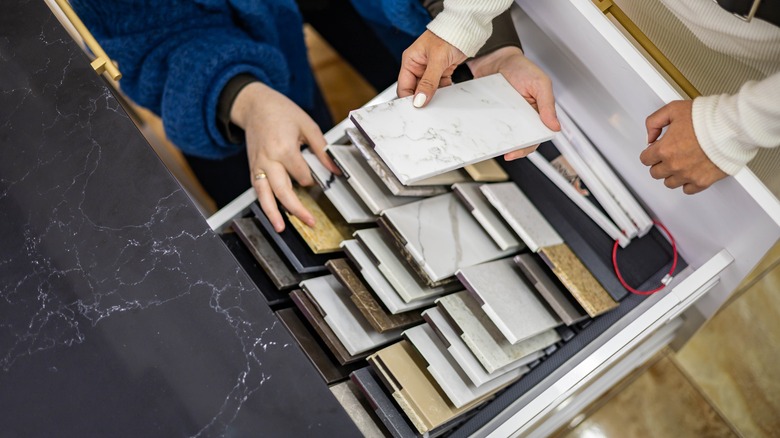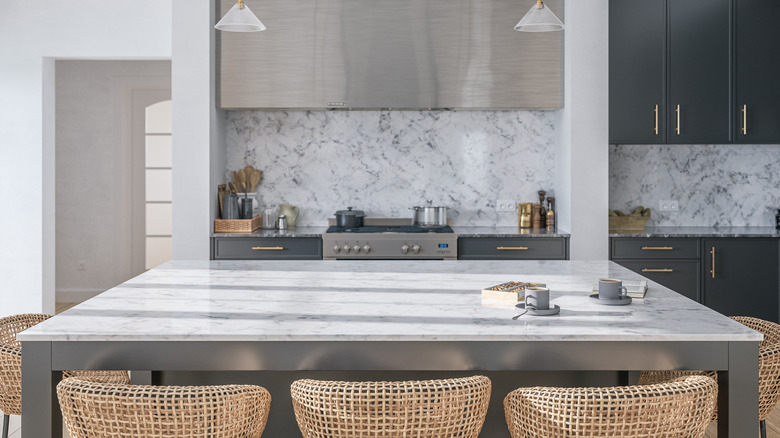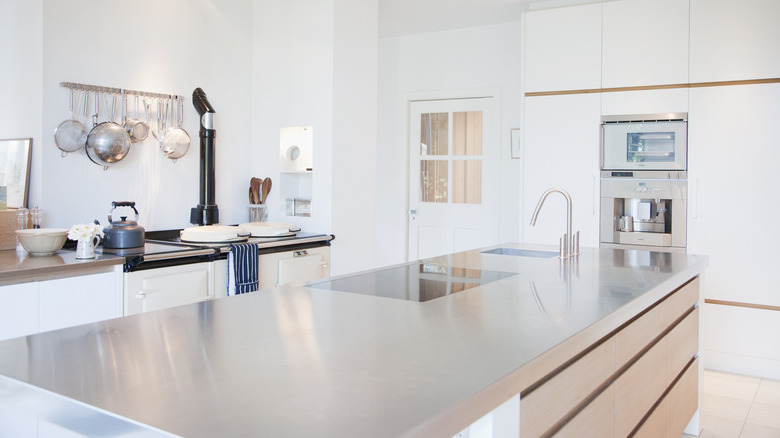Are Neolith Countertops A Good Investment? Here's What You Should Know
One of the worst mistakes you can make when redoing your kitchen is pick the wrong countertop material. Marble, granite, wood, and laminate are all popular choices, but one option you might not know much about is Neolith. If you haven't heard of Neolith, it's a material made from sintered stone and can be manufactured for several purposes, including flooring and countertops. If you have heard of Neolith and are in the process of choosing countertops for your home, we've got you covered with all of the important information you should know before you proceed.
First of all, how is Neolith made? Due to fact that it's constructed using only raw materials, Neolith is considered to be a sustainable countertop material. This is not only a merit, but a major bonus if you're trying to reduce your carbon footprint or do your bit for the environment. As for price, it isn't cheap but isn't overly expensive, either. On average, the material costs between $65 to $105 per square foot. It has plenty of benefits, but like all countertop materials, there are some downsides you should consider before taking the plunge so you can see if the investment is worth it or not.
Neolith is on the rise as a countertop material
Neolith countertops are not only sustainable, but have some other impressive features, too. First of all, unlike other stone countertops like marble, Neolith is UV-resistant and does not need sealing, meaning it's relatively low-maintenance. This low-maintenance is aided by the fact it's heat, stain, and scratch-resistant, so you won't have to worry about instances of accidentally putting a hot plate down or dropping a knife from a short distance. Generally, Neolith is one of the most durable countertop choices because of its resistance against common kitchen occurrences and mishaps.
Want to ensure your kitchen stays extra sanitary? The low-porosity finish of Neolith will stop bacteria from getting trapped. Neolith's UV resistance means it can be used outdoors, too. Plus, if your kitchen gets a ton of light, you won't have to worry about your countertops fading over time, even in direct sunlight. Finally, Neolith can mimic the look of marble depending on the design you go for, a major bonus if you love the look of marble but find yourself hesitating due to the high price and lack of stain-resistance.
The durable material does have some negative points too
Though there's plenty to like about Neolith countertops, there are also some downsides to consider. The first major con of Neolith countertops is that they need to be installed by a professional, which will drive installation costs up. You may also find it tricky to find someone willing to take on the challenge of installing Neolith, particularly since it's less popular than other countertop materials. Moreover, while it's extremely durable when fitted in place, Neolith is vulnerable to damage during the installation process. Another drawback of the material is that the different slabs of your countertops might not fully match due to the fact Neolith is dyed to whichever color you want, and dye doesn't always look the same on different areas of a material.
Generally, Neolith countertops are a good option if you have the budget to accommodate them. Their resistance to stains, heat, and most scratches means they're an excellent option for busy kitchen spaces, not to mention that their sustainable construction means you know you're not harming the planet by investing in some for your home.


